People with psoriasis react differently to dietary changes, just as they can react differently to medical treatments. But many individuals have reported success with changes in their diet. Here are foods that may help those with the skin disorder.
 iStock
iStock
Apple cider vinegar
Apple cider vinegar can be used two ways--on the skin directly or in the diet. You can add a cup to bath water or dab it directly onto sores. It can also be taken by the teaspoonful or added to water. If you find the taste too off putting, try sweetening it with a little honey.
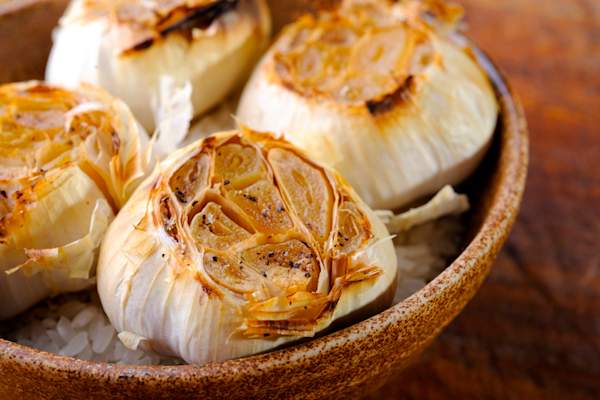 iStock
iStock
Garlic
Garlic has been used for its natural antibiotic properties for thousands of years and you may have taken advantage of it in soups when you've had a cold. But it may also prove useful for psoriasis patients. Garlic is a lipoxygenase inhibitor, which means that it can help stop the activity of enzymes responsible for inflammation.
 iStock
iStock
Fish eggs
Fish eggs--known also as roe or caviar--are one of the best sources of omega-3 fatty acids, which can help fight psoriasis. Try it atop a cracker or in a dip.
 iStock
iStock
Salmon
You've likely been hearing about salmon's anti-inflammatory properties for years, but it bears repeating. This fish is full of the good fats that can reduce inflammation and it also contains a carotenoid that can act as an antioxidant. For the most benefit choose wild-caught salmon rather than farm-raised.
 iStock
iStock
Gluten-free
If eating some foods can help reduce psoriasis symptoms, it follows that other foods can exacerbate psoriasis symptoms. One of the most common food sensitivities is to gluten, a protein found in wheat. Giving up gluten in breads, pastas and condiments has helped some psoriasis sufferers control their outbreaks.
Never miss a story on your condition! We'll shoot you an email or text when the next one comes out.
 Thinkstock
Thinkstock
Carrots and squash
An increase in fruits and vegetables is great for any diet, but may be especially great for psoriasis. Certain vegetables, such as carrots and squash, can produce an anti-inflammatory effect on the body. Although there is no hard science showing these benefits to psoriasis, experts also suggest eating more sweet potatoes, spinach, kale and broccoli for inflammation.
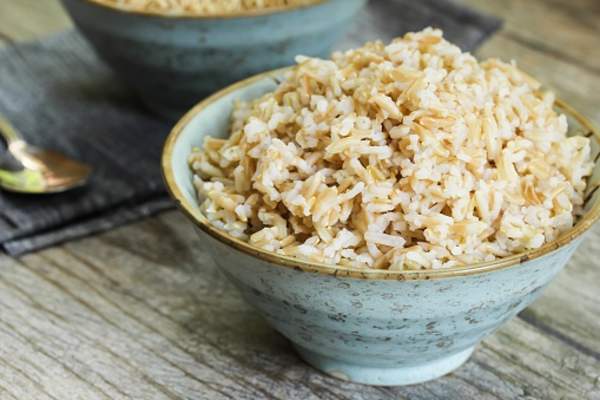 Thinkstock
Thinkstock
Healthy grains
You may be avoiding bread and pasta due to gluten, but that doesn’t mean you have to give up grains altogether. Brown rice, quinoa and select cereals are a gluten-free way to add more fiber to your diet. This can help reduce inflammation and offer better blood-sugar regulation. In addition, you may want to try legumes such as beans or lentils to boost daily fiber.
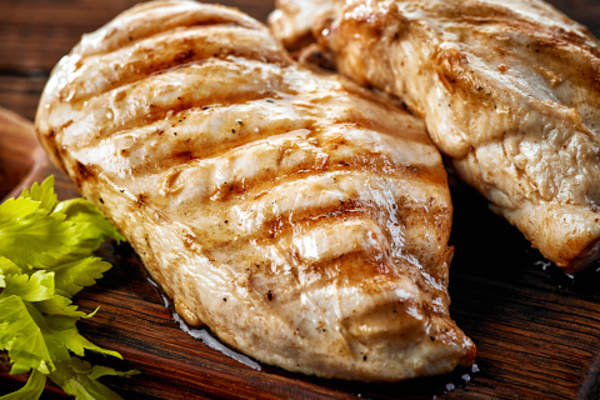 Thinkstock
Thinkstock
Lean meats
Caviar and salmon are decadent, but you don’t want to overdo it. Mix things up by adding lean meats like white-meat chicken or turkey. These are both low in fat and high in protein, but be careful of which marinades and seasonings you use (many can be high in sugar.) Although fatty red meats can cause inflammation, there are some leaner cuts such as flank steak or sirloin.
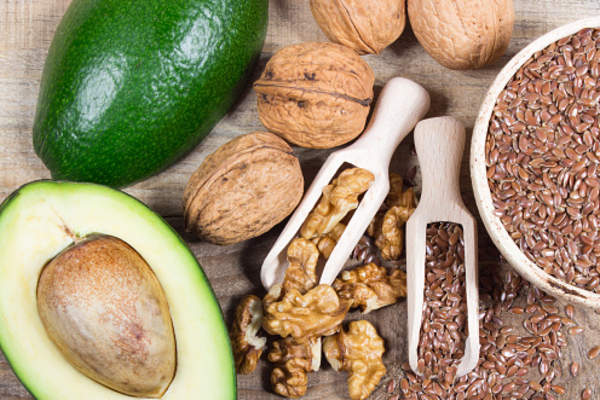 Thinkstock
Thinkstock
Nuts and avocados
Cutting out bad fats are important, but there are plenty of “good fats” that help transport vitamins throughout the body and regulate metabolism. Aim for more polyunsaturated fats (found in nuts, vegetable oils, and avocados) and monounsaturated fats (soybean oil, walnuts, flaxseed). A little goes a long way here, as many can pack a high-calorie count.
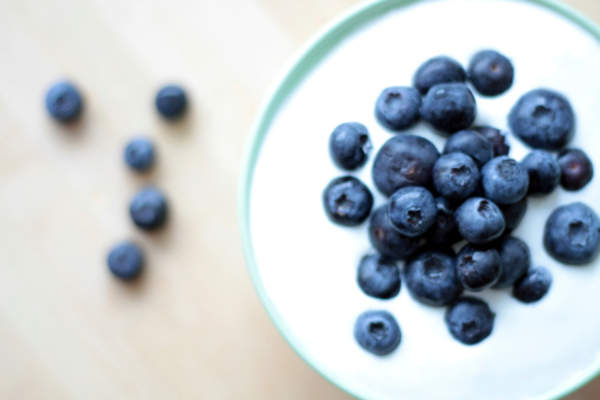 Thinkstock
Thinkstock
Blueberries
If there was ever a ‘psoriasis super fruit,’ this might be it. Blueberries have high anti-inflammatory properties, are packed with vitamin C, and are a good source of fiber. They also contain manganese which supports bone health. Researchers are just beginning to study the benefits of blueberries, but a general rule is that more fruits and veggies is always a good thing.
 iStock
iStock
Avoid nightshade vegetables
Vegetables in the nightshade family, such as peppers, tomatoes, potatoes and eggplant may have an affect on people who are sensitive to alkaloid substances. Alkaloids can affect nerves and muscles. Reducing these vegetables in your diet may help decrease symptoms of psoriatic arthritis.